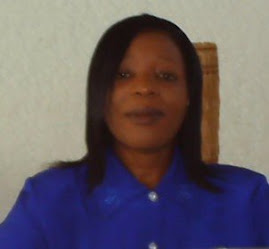At a time when decision making in Zimbabwe is so important, the aspiring leaders in the country, namely Mugabe & Tsvangirai are showing that they do not know how to make a good choice among alternatives. They seem to be relying on ill advice or personal intuition without realising that their own cognitive biases affect their judgement. The complexities in the country's economic and political environment make good judgement more critical than ever. The errors in judgement by these leaders originate in their mind's limited capacity as well as in the biases they display during decision making. I want to make you aware of biases that these leaders have that has been impacting negatively on their decision making.
Mugabe's bias is believing what he wants to believe without taking coignisance of the situation on the ground. He is so far removed from reality that he thinks the cholera outbreak in the country is a result of biological warfare perpetrated on Zimbabweans by the West. This bias prevents him from seeing the truth that the cholera is a result of the power and water supply cuts in the country that made the hygiene in the country a major health hazard, as well as lack of enough water purification chemicals. He also wants to believe that the hunger in the country is a result of sanctions that Tsvangirai asked the West to impose on Zimbabwe six years ago when he lost elections yet in actual fact it is a result of the new farmers he allocated land to not fully utilising that land. It is this bias that prevents him from looking for the right information when considering decisions and as a result prevents him from making the right decisions. He tends to give too little weight to information that conflicts with his established viewpoints instead of examining all the evidence with equal rigor. His weakness is his unwillingness to admit that he made a mistake which causes him to continue to make flawed decisions. Having a devil's advocate to argue against a decision can help avoid this decision trap but I suppose Mugabe does not have a devil's advocate, none of his close associates, the former ministers, dares to say anything that is against his way of thinking, they all tell him what he wants to hear.
On the other hand Tsvangirai's bias is perpetuating the status quo. He bases his decisions on what has worked in the past and fails to explore new options, dig for additional information and investigate new possibilities. I am talking about Tsvangirai's belief that since he managed to call for effective stayaways and food riots back then, ten or more years ago when Zimbabweans had started suffering he can use the same method and use the suffering of Zimbabweans to gain himself political mileage. What he fails to see in his bias is that the more Zimbabweans suffer while he does nothing about that suffering the more the Zimbabweans lose confidence in his leadership abilities. Instead he should be seen to be working very hard, (be it remotely or not)to eradicate the suffering of the people and by so doing gaining the people's confidence in him as a capable leader. He is well-connected and could use those connections to make things right for the suffering people now even without signing any GNU agreement. What worked ten years ago when he was at the helm of the labour union might not work now and his bias of perpetuating the status quo prevents him from seeing that. When considering decisions, his mind gives disproportionate weight to the first information it received back then during the food riots and stayaways when he tasted his first victory in influence. This initial victory acts as an anchor to his subsequent thoughts and judgements but then in the rapidly changing environment that is Zimbabwe, giving too much weight to that past can lead to poor forecasts and misguided decisions.
Both leaders, Tsvangirai and Mugabe alike, also suffer from overconfidence, this is a decision-making bias that makes them overestimate their ability to predict uncertain outcomes. Before making a decision, they both have unrealistic ideas of their ability to understand the impact of the situation on Zimbabwe at large and so they fail to make the right choice. I am talking about their continued marathon GNU talks that achieved absolutely nothing except play with the hopes of suffering Zimbabweans. In coming up with decisions during the talks they were all overconfident that their different strategies would clinch a win-lose deal for them but that wasn't the case, they both overestimated their ability to predict uncertain outcomes. It is their overconfidence in wrong predictions that made them both select the wrong decisions which resulted in no GNU deal. Not that the GNU was the best solution for the country, it wasn't because it would have killed democracy in the country for good, the way the unity agreement between Zanu and Zapu did, but one thing it did was show us that here in Zimbabwe we have got two leaders whose decision-making abilities are as pathetic as the situation in the country they aspire to rule.
Tuesday, January 6, 2009
Subscribe to:
Post Comments (Atom)






No comments:
Post a Comment